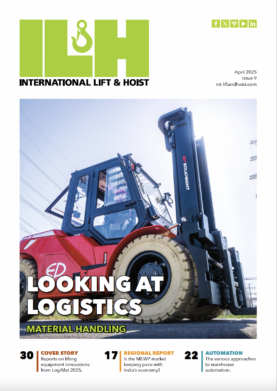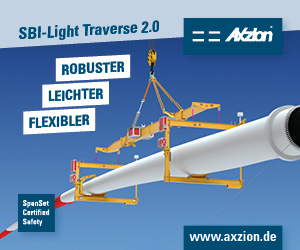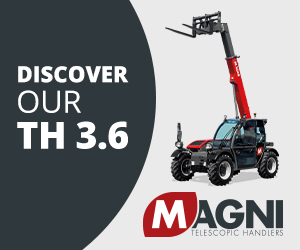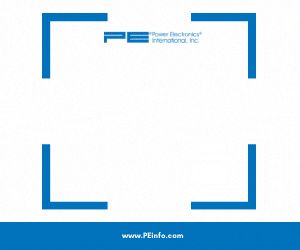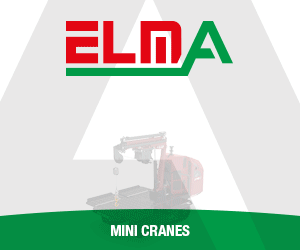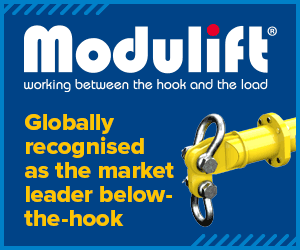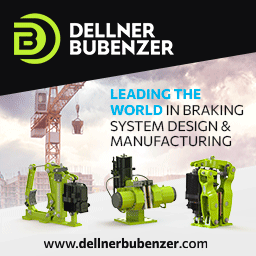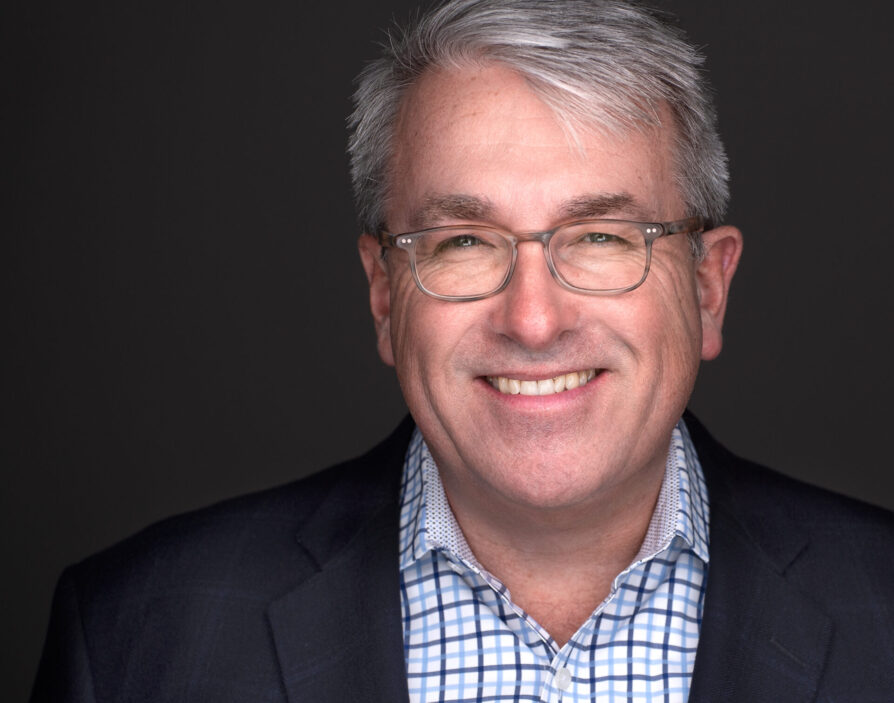)
Communication is key
Following the recent acquisition of German lightweight cranes specialist, eepos, Robert Desel, CEO of Kito Crosby, spoke to Maria Hadlow about integrating the new company and the importance of maintaining relationships with customers, teams and potential acquisitions.
An aging workforce and an increasing trend for industrial lifts of increasing weight and complexity are just a few of the reasons that Robert Desel, CEO of Kito Crosby, cites for the growing relevance of lightweight crane systems.
“Lightweight cranes are easy to put up and can be reconfigured if users want to change their manufacturing or workshop layout – that makes them very Lean-friendly for manufacture,” says Robert.
“Facilitating assistance in lifting is an increasing trend and, with an aging workforce, a growth area. We use it in our own plants – I love that we get to use own products within our business. We’ve recently put a system into one of our forges, it’s a light duty overhead crane with a balancer for lifting lift heavy billets – that sort of work is going on all over the world and we are going to be there to make it happen alongside our channel partners. The market needs safer more ergonomic lifting.”
Kito Crosby entered into an agreement to acquire eepos GmbH and its subsidiaries, earlier in the year finalizing the acquisition in the third quarter of 2024. Eepos is an aluminium light crane systems specialist, which has introduced flexible lifting solutions to workplaces worldwide it has subsidiaries in the US, Mexico, Brazil, Hungary, Turkey, France, South Africa, China, and India.
“With any acquisition look for cultural alignment and a passion for design and engineering and for making lifting safer,” says Robert.
“The eepos’ aluminium crane systems are extremely lightweight and user friendly, durable and well-engineered. The safety element is expressed as greater ergonomics for the workers – we always look for that.
“At our heart we are a manufacturing business and we look for companies with the same principles, also for complementary products. Kito Erikkila [a Kito Crosby brand] is a dominant and world leader in light duty steel cranes – they have a small aluminium business but eepos is 100% aluminium and an industry leader.
“Eepos has a complementary product portfolio and is also beneficially placed geographically. This means we are present in regions that eepos can leverage to get to market quicker, and eepos has locations, such as Mexico, which is an important market for Kito Crosby.”
Eepos will join Kito Crosby’s portfolio of installed lifting solutions, including the Kito Erikkila brand. Where the brands may have competed before Robert says that having them both under the same umbrella will, “Allow each business to play to its strengths.” For example, Erikkila may have offered a steel crane when aluminium would suit the application better and vice versa for eepos. Now, the most appropriate solution can be supplied.
Robert says, “When we acquire a new business it’s important to take some time to see what the best configuration looks like. We spend about a year in what I would call an ‘incubation phase’ I do not believe in moving too quickly as you learn a lot from running a business from day-to-day and from the people that work there. Investment in product development and engineering will continue across the business including investment in inventory and people, for example. But we won’t make any major changes until we understand the relative strengths of the business and what makes it tick.”
The eepos workforce has automatically come under Kito Crosby’s Ownership Participation Programme, which allows all team members to participate in the equity growth of the business. It provides every team member employed at the time of a future sale or liquidity event, regardless of location or role, with a meaningful financial stake in Kito Crosby’s growth and is a key pillar in driving employee engagement and building a stronger business.
Engaging and maintaining the workforce is increasingly important as Robert has identified an aging workforce as one of the major business disrupters, along with the universal difficulty in attracting new people into the industry.
“While an aging work force increases the demand for our tools and solutions to do assisted rather than manual lifting, we are also challenged in finding people who want to do this kind of work,” says Robert. “In some areas there is a good pool of folks, but in others it is harder to find – and we can’t just move our plants. Instead, we invest in trade schools and in our team and try make Kito Crosby businesses good places to work. We have lots of multi-generational families working for us, which we take as an indorsement.”
Robert admits that as Kito Crosby has grown – rapidly – over the last few years, he has needed to, “be much more thoughtful and intentional about where I spend my time and in getting out to all the markets. I now have a heat map of sites and customer visits, indicating where I should spend more time. When the business was smaller and less global, I could keep that information in my head.
“With more than 60 businesses in 30 countries it is both Important and a challenge keep channels of communication flowing,” says Robert. “I am even starting to use Ai tools to translate some of my smaller updates into local languages. I am also much more conscious of having my direct team fully competent as I need to delegate details at that level. A more global business has brought career development and mobility opportunities for team members too.”
Maintaining the community feel as the business grows is still important to Robert and he continues to do a lot of one-on-one outreach with customers and team members.
“A lot of team building goes on at the site level too,’ he says. “Last year we had 600 to 700 site level team building events. From something as simple as an ice cream truck at the Arlington facility to arranging a bus so team members from the Yamanashi site could help clean up after the earthquake (at their request). Initiatives start at local sites and we do what we can to facilitate them.”
Robert is clearly passionate about manufacturing and the accountability and traceability that your own manufactured product brings. He identifies supply-chain security (or the lack of it) as another disrupter, which could impact the safety of those working around industrial lifting.
“We need there to be an increase in understanding between manufacturing and branding,” he says. – Where branding is a piece of equipment bought elsewhere and re-branded by the vendor.
“When you buy from a company that actually made your equipment, you have support, security and peace of mind. We run the factory, we touch it all the way through – we don’t buy it from some foreign land,” he says.
“Simplifying the supply chain de-risks supply chain security. Good products are made in all countries but this business is too important not to be transparent with customers as to the provenance of the lifting product you choose.
“Did you make or did you buy it?
“We make 90% of our product, but we will be clear about the 10% we don’t make. To do anything less is being unfair to the customer.”
So, is Kito Crosby actively looking for further acquisitions?
“Geographically we are now well covered,” says Robert. “I can’t imagine any new acquisition motivated by geography, but there could be some product lines where we could bring solutions to the market more quickly with other companies rather than organically. We are attracted to technology, such as the solutions offered by Crosby Straightpoint and Crosby BlokCam. We are proven to be good stewards of the businesses we have acquired and their teams – until we find the right company we will innovate internally.
“There may be technology companies out there in the market doing wonderful things who would benefit from an instant global market. It might take them ages and a lot of cost to get it to that many people themselves.
“When those opportunities arise it is myself and our chief strategy officer who do the outreach. A strong personal relationship is important and I want to get involved early on and I want people to get to know me.
“High trust is vital and that starts at the beginning.”



